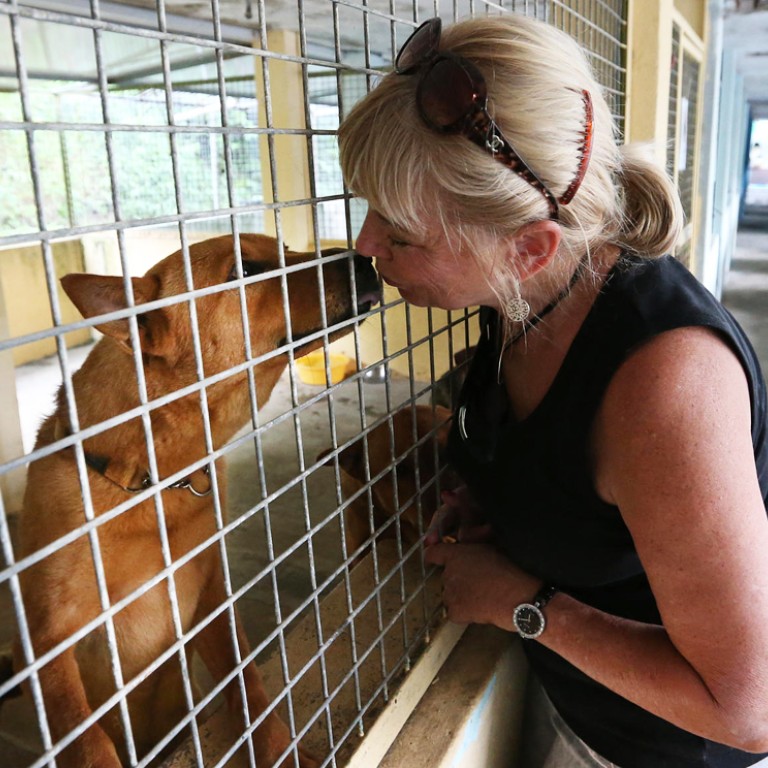
Dog kennels being kept on a tight lease
Private shelters urge government to relax rules on renting land for their premises as they face difficulty relocating each time the contract ends
The government should relax the rules on leases for private animal shelters so that stray dogs don't end up on "death row" every few years, a kennel owner says.
Animal welfare centres are typically granted only short-term leases, at the end of which they face eviction as they struggle to find new premises.
The problem looms for the Sai Kung Stray Friends Foundation. It signed a five-year lease on a new site in Ma On Shan but is scrambling to get government approval to start construction before its current Sai Kung landlord calls time in December on a six-month rental extension.
"We take [dogs] from government kennels all the time," Sally Anderson, of Hong Kong Dog Rescue, said. "It would be great if we could get something back."
Most government land is granted on short-term leases that range from three to five years, usually while the government decides on development plans.
Anderson said while the rents were just 3 per cent of the market rate, a kennel also faced the cost of tearing down its existing shelter and building a new one each time it relocated, all of which could run into millions of dollars.
"We've got a kind owner in Tai Po right now who has given us a lease for two years, but we don't know how long we'll go on for.
"If we were in the same situation as Sai Kung Stray Friends, we'd be absolutely devastated."
Sai Kung Stray Friends is waiting for the Town Planning Board's approval on its Ma On Shan building plans.
Anderson said land in the New Territories was often owned in small plots by villagers and registered under shell companies whose addresses were only post-office boxes. That posed a difficulty in determining who the real owners were, she said.
And because of the reputation of animal shelters as "rich" charities, some property owners would hold out for more money, she added.
The Agriculture, Fisheries and Conservation Department said it "stands ready to assist applicants" to secure longer-term leases. It said 3,727 dogs had been rehomed with the help of independent animal welfare groups between 2009 and last year.
The Lands Department estimates more than 600 short-term tenancies are effective at nominal rents.
At the other end of the story, the Society for the Prevention of Cruelty to Animals is looking to reduce the number of animals being abandoned by producing education kits for five- to 12-year-olds that encourage responsible pet ownership. So far, 750 English and 2,250 Chinese versions of the kit have been created, and a thousand have been handed out.
"I made the kit after seeing quite a lot of impulse decisions made by parents and children that eventually bring harm to the animals," said SPCA education manager Vivian Chiu.
"I hope this kit can encourage children and parents to understand more about details such as life cycles and real needs of animals before making the decision to take in a pet," she said.
Between 2012 and 2013, SPCA inspectors rescued 5,472 animals while 975 were abandoned to centres by their owners and 1,194 strays were found by the public.

